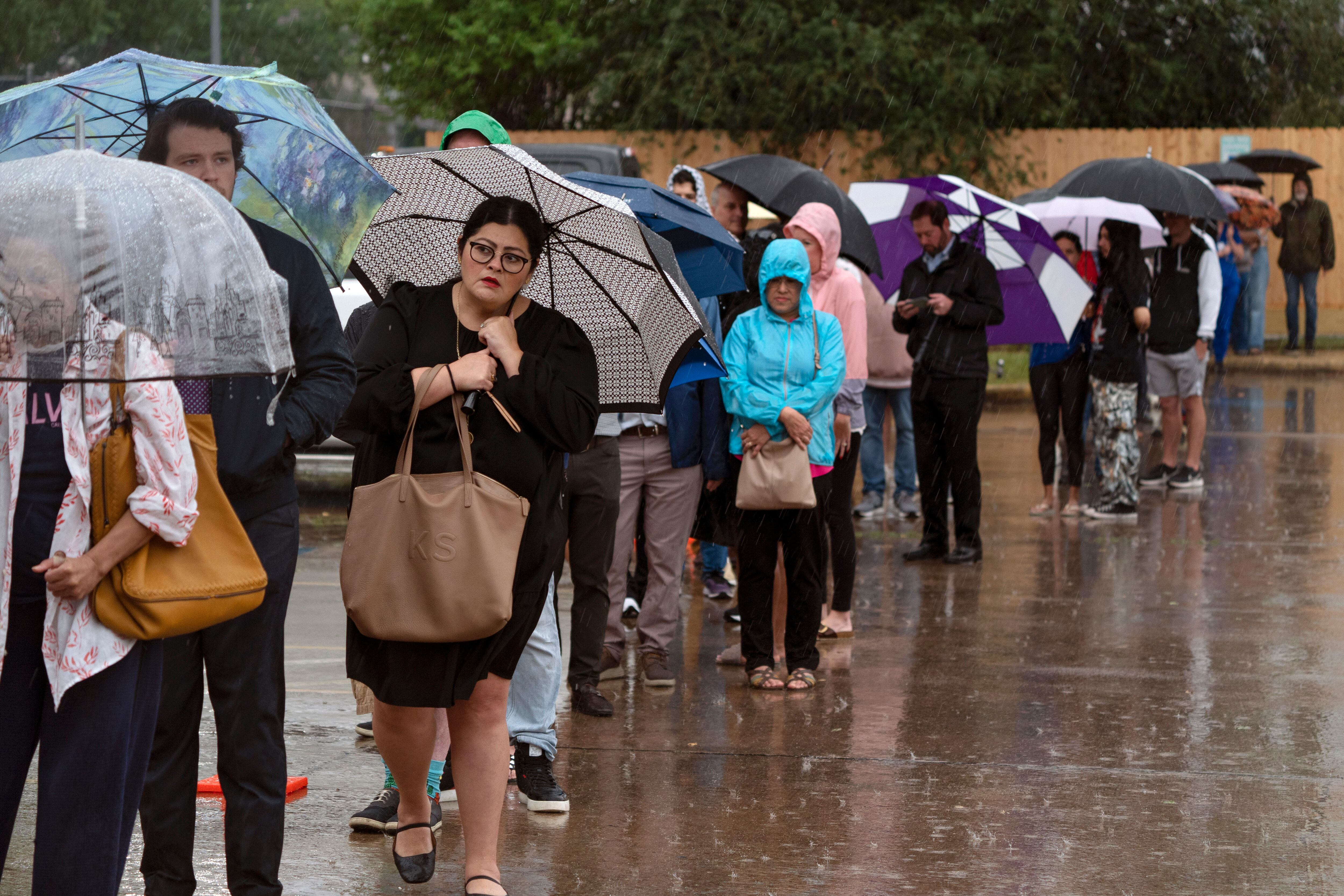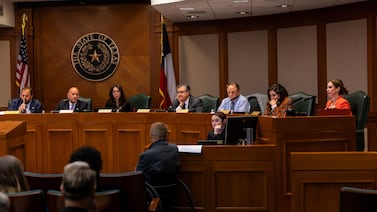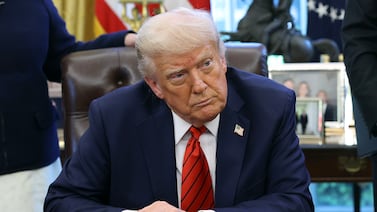This story was reported in partnership with The Texas Tribune, a member-supported, nonpartisan newsroom informing and engaging Texans on state politics and policy.
Votebeat is a nonprofit news organization reporting on voting access and election administration across the U.S. Sign up for Votebeat Texas’ free newsletter here.
Gov. Greg Abbott has set Nov. 4 as the special election date to fill the congressional seat left vacant by former Rep. Sylvester Turner’s death — a timeline that leaves the solidly Democratic seat vacant for at least seven months as Republicans look to drive President Donald Trump’s agenda through a narrowly divided Congress.
Turner, a former Houston mayor and Democratic state lawmaker, died March 5, two months into his first term representing Texas’ 18th Congressional District. State law does not specify a deadline for the governor to order a special election.
With Turner’s seat vacant, the House breaks down to 220 Republicans and 213 Democrats, allowing the GOP to win a majority on the floor even with three defections from their ranks. If Turner’s seat were filled, likely by a Democrat, the GOP could withstand only two defections.
Democrats, including U.S. Rep. Hakeem Jeffries, the Democratic minority leader, pressured Abbott to call a special election, threatening to sue if the Republican governor continued to hold off on scheduling the contest.
Christian Menefee, the acting Harris County attorney and a Democrat running for the seat, had also threatened legal action if Abbott did not order a special election. He recently called on the governor to set the election for June 7, the date of the runoffs for the May 3 uniform election — when voters will elect representation for many local governments across Texas.
According to state law and precedent, Abbott had until March 18 to set the contest for May 3. He also could have declared an “emergency” special election, which allows for an election to take place outside the May or November uniform election dates.
Turner was elected to Congress last year after his predecessor and political ally, former U.S. Rep. Sheila Jackson Lee, died of pancreatic cancer while also serving out her term. She spent nearly three decades representing the deep-blue district, which encompasses downtown Houston and several of the city’s historic neighborhoods, including the Third Ward and parts of The Heights and Acres Homes.
Also running to succeed Turner is former Houston City Council member Amanda Edwards, a Democrat who twice ran for the seat in 2024. She was defeated by Jackson Lee in the March primary; Jackson Lee died before the general election, opening the party’s nomination to a vote of local party officials, who narrowly picked Turner over Edwards.
Isaiah Martin, a former staffer for Jackson Lee, also jumped into the race last month.
In a statement, Menefee blasted Abbott for not setting the election for an earlier date.
“It is unconscionable to leave nearly 800,000 people in this district without representation in
Congress for most of the year,” Menefee said. “We’ll go through hurricane season, budget battles, and attacks on Social Security and Medicaid with no one at the table fighting for us.
Governor Abbott knows how to move quickly — he’s done it for other districts. He just chose not to for us.”
In ordering the election for November, Abbott claimed that Harris County needed more time to carry out an election properly, referring to the county’s election problems in 2021 and 2022.
“No county in Texas does a worse job of conducting elections than Harris County,” Abbott said. “They repeatedly fail to conduct elections consistent with state law. Safe and secure elections are critical to the foundation of our state. Forcing Harris County to rush this special election on weeks’ notice would harm the interests of voters.”
Democrats, including Harris County Clerk Teneshia Hudspeth, have disputed Abbott’s portrayal of elections in the state’s most populous county, which includes Houston.
In response to similar comments Abbott made last week, Hudspeth said in a statement that her office has successfully run eight elections since she took over the duties in 2023, including the 2024 primary and presidential elections.
Issues in 2021 and 2022 prompted state lawmakers to abolish the Harris County elections administrator position. Abbott signed that law, which transferred election administration duties to the county clerk and voter registration responsibilities to the tax assessor-collector’s office.
The Secretary of State’s Office found that for the November 2022 election, the county had different numbers of registered voters than the state, and different numbers of absentee ballots sent out. That audit didn’t detail the causes of the discrepancies, nor suggest they influenced the outcomes of any races. That report also said the county failed to adequately train election workers and failed to supply some polling locations with enough ballot paper.
Since then, the Texas Secretary of State’s Office told state lawmakers that the county had improved how it runs elections and credited Hudspeth’s leadership.
“She was able to identify a lot of issues, even prior to any of these audit findings being released, that have been remedied,” said Christina Adkins, the agency’s Elections Division Director during an interim House Elections Committee hearing on the state’s election audits in August. “I have seen myself the changes in her training program that I think have prevented some of these issues from reoccurring.”
In February 2021, after the death of U.S. Rep Ron Wright, R-Arlington, Abbott called a special election to fill Wright’s seat on the third day after his burial, or just two weeks after his death.
Abbott called a special election to fill Jackson Lee’s seat just over a week after her funeral, and 17 days after her death.
In those cases, however, there were several months before the next uniform election date.
He called for an emergency election on June 30, 2018, to replace former U.S. Rep. Blake Farenthold, R-Corpus Christi, who resigned that April. Then, Abbott pointed to the recovery from Hurricane Harvey as justifying an emergency election.
Natalia Contreras covers election administration and voting access for Votebeat in partnership with the Texas Tribune. She is based in Corpus Christi. Contact Natalia at ncontreras@votebeat.org






